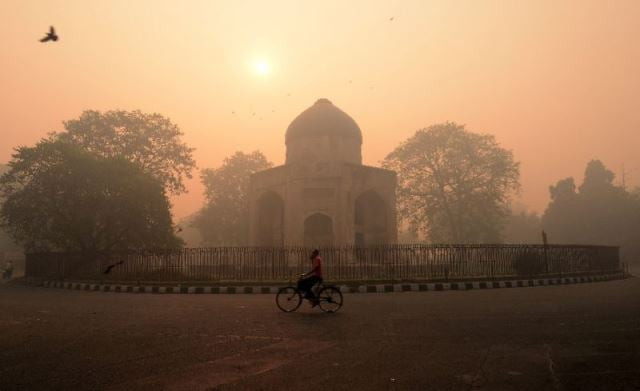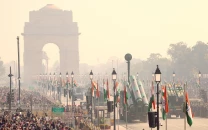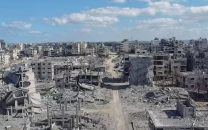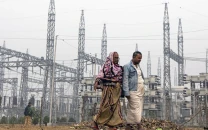New Delhi shuts power plant in fight against Diwali smog
The measures follow a temporary ban on the sale of firecrackers by the Supreme Court to ease the pollution levels

Last year, pollution levels were sky high in the days that followed Diwali, prompting the Supreme Court to warn of a public health emergency. PHOTO: AFP
New Delhi experiences suffocating smog every year around Diwali, when farmers in north India burn the stubble left behind after the harvest and revellers let off smoke-spewing firecrackers.
The onset of winter aggravates the problem as the cooler air traps the pollutants, a phenomenon known as inversion.
The Environment Pollution (Prevention and Control) Board, a statutory body, made the ruling as levels of PM2.5 pollutants in the air reached around 200 micrograms per cubic metre -- eight times the World Health Organization safe limit of 25.
India's top court bans firecracker sales before Diwali
"Difficult situations demand tough responses and solutions and Delhi is faced with a really difficult situation each winter when air pollution levels spiral out of control," said its chairman Bhure Lal in a statement.
The Board said the city's Badarpur power plant, which has a capacity of around 700 megawatts, would be closed until March. The plant is due to shut down for good next July as India seeks to move away from heavily-polluting fossil fuels.
It also banned the use of the privately-owned diesel generators that many rich households rely on during India's frequent power cuts.
The measures follow a temporary ban on the sale of firecrackers in Delhi introduced earlier this month by the Supreme Court to ease the pollution levels.
Last year, levels of PM2.5 -- the fine particles linked to higher rates of chronic bronchitis, lung cancer and heart disease -- soared to 778 in the days that followed Diwali, prompting the Supreme Court to warn of a public health emergency.
Leopard caught after 36 hours on prowl in India factory
Levels of PM2.5 between 301 and 500 are classified as "hazardous", while anything over 500 is beyond the official index.
The Delhi government then shut schools for three days, banned all construction work for five days to curb dust levels and temporarily closed the Badarpur plant.
A 2014 World Health Organization survey of more than 1,600 cities ranked Delhi as the most polluted.
India's notoriously poor air quality causes over a million premature deaths every year, according to a joint report by two US-based health research institutes earlier this year.


















COMMENTS
Comments are moderated and generally will be posted if they are on-topic and not abusive.
For more information, please see our Comments FAQ